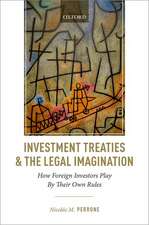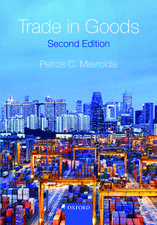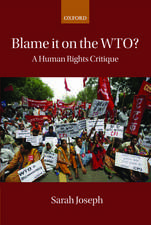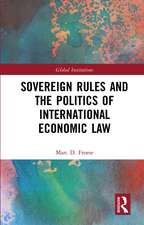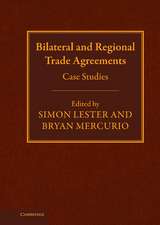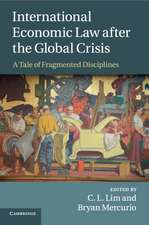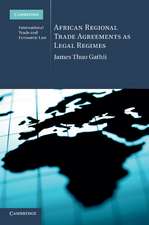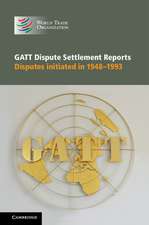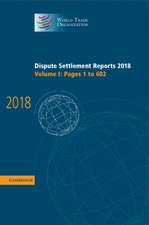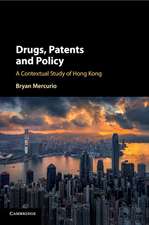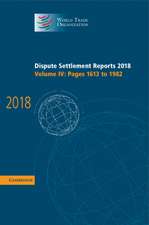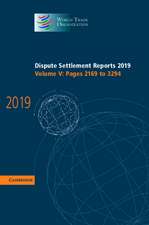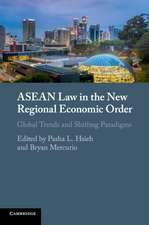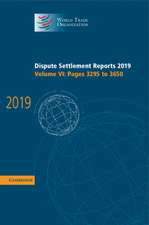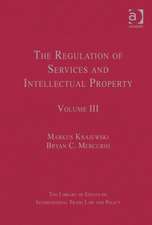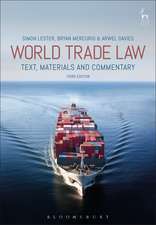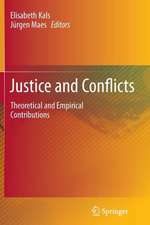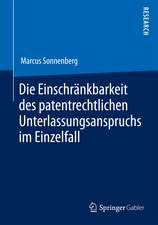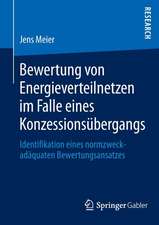Capital Controls and International Economic Law: Cambridge International Trade and Economic Law
Autor Bryan Mercurioen Limba Engleză Paperback – 14 noi 2024
| Toate formatele și edițiile | Preț | Express |
|---|---|---|
| Paperback (1) | 201.98 lei 6-8 săpt. | |
| Cambridge University Press – 14 noi 2024 | 201.98 lei 6-8 săpt. | |
| Hardback (1) | 692.51 lei 17-23 zile | +67.96 lei 4-10 zile |
| Cambridge University Press – 31 mai 2023 | 692.51 lei 17-23 zile | +67.96 lei 4-10 zile |
Din seria Cambridge International Trade and Economic Law
-
 Preț: 177.62 lei
Preț: 177.62 lei -
 Preț: 271.22 lei
Preț: 271.22 lei -
 Preț: 284.39 lei
Preț: 284.39 lei - 23%
 Preț: 692.51 lei
Preț: 692.51 lei -
 Preț: 177.47 lei
Preț: 177.47 lei - 14%
 Preț: 699.45 lei
Preț: 699.45 lei -
 Preț: 216.93 lei
Preț: 216.93 lei - 14%
 Preț: 698.61 lei
Preț: 698.61 lei -
 Preț: 321.52 lei
Preț: 321.52 lei -
 Preț: 272.97 lei
Preț: 272.97 lei -
 Preț: 323.05 lei
Preț: 323.05 lei - 14%
 Preț: 868.71 lei
Preț: 868.71 lei -
 Preț: 292.88 lei
Preț: 292.88 lei -
 Preț: 288.42 lei
Preț: 288.42 lei - 23%
 Preț: 641.51 lei
Preț: 641.51 lei -
 Preț: 178.30 lei
Preț: 178.30 lei -
 Preț: 432.05 lei
Preț: 432.05 lei -
 Preț: 320.17 lei
Preț: 320.17 lei - 23%
 Preț: 753.36 lei
Preț: 753.36 lei - 11%
 Preț: 636.34 lei
Preț: 636.34 lei - 23%
 Preț: 616.00 lei
Preț: 616.00 lei - 14%
 Preț: 703.74 lei
Preț: 703.74 lei -
 Preț: 285.37 lei
Preț: 285.37 lei - 14%
 Preț: 699.45 lei
Preț: 699.45 lei - 14%
 Preț: 786.62 lei
Preț: 786.62 lei -
 Preț: 314.83 lei
Preț: 314.83 lei - 14%
 Preț: 895.68 lei
Preț: 895.68 lei - 14%
 Preț: 708.14 lei
Preț: 708.14 lei - 14%
 Preț: 1015.31 lei
Preț: 1015.31 lei - 14%
 Preț: 896.85 lei
Preț: 896.85 lei -
 Preț: 405.20 lei
Preț: 405.20 lei -
 Preț: 322.51 lei
Preț: 322.51 lei - 14%
 Preț: 727.26 lei
Preț: 727.26 lei -
 Preț: 283.79 lei
Preț: 283.79 lei - 14%
 Preț: 727.59 lei
Preț: 727.59 lei - 14%
 Preț: 785.48 lei
Preț: 785.48 lei
Preț: 201.98 lei
Nou
Puncte Express: 303
Preț estimativ în valută:
38.65€ • 41.97$ • 32.47£
38.65€ • 41.97$ • 32.47£
Carte tipărită la comandă
Livrare economică 22 aprilie-06 mai
Preluare comenzi: 021 569.72.76
Specificații
ISBN-13: 9781009045452
ISBN-10: 1009045458
Pagini: 241
Dimensiuni: 152 x 229 x 13 mm
Greutate: 0.33 kg
Editura: Cambridge University Press
Seria Cambridge International Trade and Economic Law
ISBN-10: 1009045458
Pagini: 241
Dimensiuni: 152 x 229 x 13 mm
Greutate: 0.33 kg
Editura: Cambridge University Press
Seria Cambridge International Trade and Economic Law
Cuprins
Part I. Key Concepts: Capital Flows and Controls; 1. The Liberalisation of capital flows; 2. Capital flow management, measures; Part II. The IMF, Capital Flows and Controls; 3. Shifting the IMF mandate; 4. The Legality of the IMF's mandate expansion; Part III. Legal Frameworkss, Rules and Conflicts; 5. The multilateral trade framework; 6. Bilateral and regional trade agreements; 7. International investment agreements; 8. Conclusions.
Recenzii
'This essential volume illuminates a dark but critical component of international economic law: the international legal regulation of capital controls. This is a field of deep economic and political interest, and implicates the question of the “right to regulate,” in connection with economic policy in developing and developed countries. But the applicable law is fragmented and somewhat ambiguous, with various rules associated with various institutions. Prof. Mercurio provides a careful and persuasive analysis of the current legal situation under IMF, WTO, and preferential trade agreement law, and an essential roadmap for policy-makers as they seek to comply with, or perhaps to reform, the law. This lucid and well-documented volume also provides a valuable resource for students and scholars of international economic law.' Joel P. Trachtman, Professor of International Law and Henry J. Braker Professor of Commercial Law, The Fletcher School, Tufts University
'Bryan Mercurio's new book provides a fascinating and excellently written study of the changes of the IMF's dealing with capital controls in the past decades, and its relationship with international economic law. It convincingly demonstrates that necessary capital controls are not in an unresolvable conflict with countries' obligations under WTO or investment law. This is an important finding, in particular in a time where we do see increasing investment controls for public security reasons around the globe.' Christoph Herrmann, Chair Professor of Constitutional and Administrative Law, European Law, European and International Business Law, University of Passau
'Bryan Mercurio's new book provides a fascinating and excellently written study of the changes of the IMF's dealing with capital controls in the past decades, and its relationship with international economic law. It convincingly demonstrates that necessary capital controls are not in an unresolvable conflict with countries' obligations under WTO or investment law. This is an important finding, in particular in a time where we do see increasing investment controls for public security reasons around the globe.' Christoph Herrmann, Chair Professor of Constitutional and Administrative Law, European Law, European and International Business Law, University of Passau


